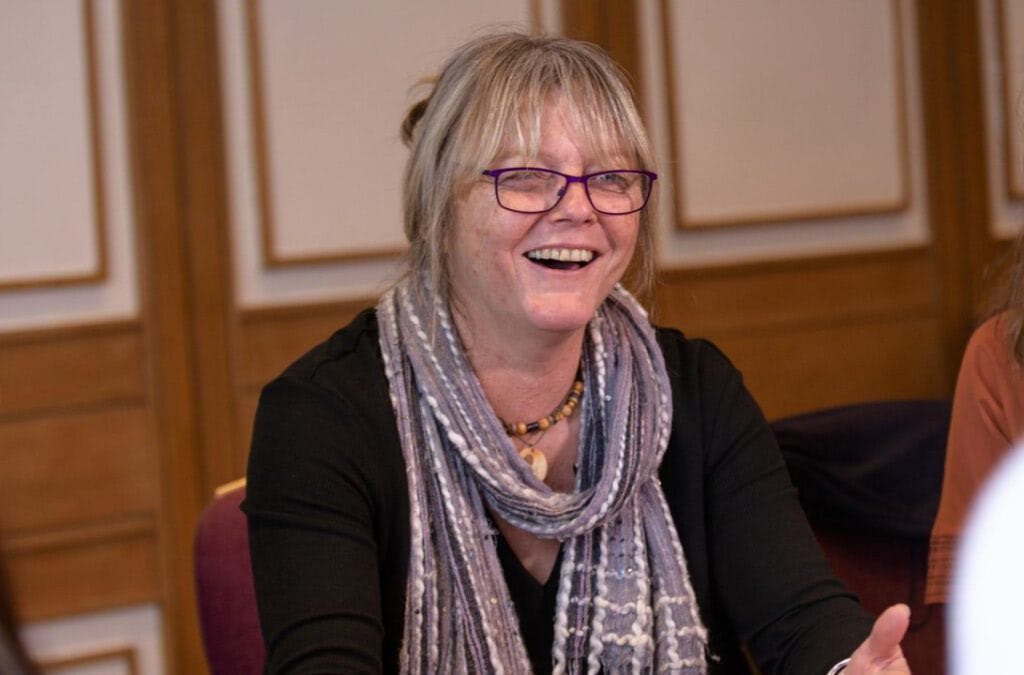Forest Schools – an alternative provision to support pandemic recovery?

Sue Benton from AIM Qualifications explains how swapping the indoor classroom for the outdoors offers a new, theraputic kind of classroom for pandemic weary teachers and students.
Whilst we are all pandemic weary and exhausted, we are now considering the future and how to support our students as we return to some form of normality. We all need to move forward and establish the new norms and new possibilities. However, as we venture into the next phase of pandemic recovery, we are faced with an unsavoury truth… the pandemic has left many individuals vulnerable, not only in relation to their education and the often government quoted “gap”, but their confidence, self-esteem, and ability to jump back on the “curriculum education train”.
When reflecting on the last year, although we accept the hardships and difficulties that have been thrown our way, I think we can all agree that as a nation we have developed a new respect for Mother Nature, the outdoors, the place we longingly looked at through a window for many days of 2020 and 2021.
Some of us have always been aware of the power of the outdoors, its ability to heal, empower, teach, and safeguard our wellbeing, however, this has often been reserved for those that are keen ecologists, horticulturalists and outdoor advocates. The pandemic has now gifted us with an acute awareness that the outdoors is an element of the balance needed to manage the stresses and difficulties that life throws at us. College’s and outdoor centres have provided a haven for individuals to learn, develop self-esteem and wellbeing, confidence, and in some cases, develop a career in an industry that just keeps giving.
And it is this “keeps giving” that I now focus on. With the government discussing the need for “catch-up skills” programmes for weekends and summer camps, there is an assumption that these will focus on curriculum led activities within schools and classrooms. Whereas the truth is that this approach will not fit all and alternative provision is needed to support emotional, alongside academic, recovery.
The Forest Schools qualifications provide an alternative approach which not only supports educational achievement but provides a wealth of “value added” benefits to support individuals navigate the road back to the new norm. Forest Schools offer courses and qualifications that recognise the teaching and learning opportunities within an outdoor setting. The ability to embed numeracy, literacy, science, history, geography and art, to name but a few, into outdoor activities. Thus providing:
- A non-threatening environment to create and engage with teaching and learning activities without the pressure of expectation or curriculum targets.
- The opportunity for individuals to succeed without fear of failure.
- An opportunity to capitalise on the liberating feeling of being outdoors and in turn building confidence in communicating and interacting in small groups.
- A non-threatening approach to reintegration into the larger educational setting.
- An alternative to the “catch up” summer skills camp, delivering key skills in a fun and non-threatening, stress evoking environment.
- Activities that can be shaped to individual needs.
- Levels of accredited qualifications that can be selected to suit student’s needs.
- Diverse health benefits to support reintegration into school life, socialising with others and navigating the new normal.
- The ability and space for students to discuss and digest how they are feeling, giving the time needed to move forward.
- Benefits for mental health and overall wellbeing.
- An opportunity to offer a wellbeing retreat for vulnerable individuals, affording the ability/choice to achieve a qualification to further enhance self-esteem and confidence.
There are multiple benefits to delivering Forest Schools qualifications and using outdoor spaces as an alternative provision. Moving beyond the impact of the pandemic requires a multi-faceted approach and one that gives every individual the opportunity to succeed, as an alternative provision, forestry and outdoor education opportunities could be the answer to many issues and barriers we face moving forward.
Sue Benton is a Centre Lead at AIM Qualifications and Assesment Group.
Download a copy of AIM’s Suite of Forest School Qualifications












Responses